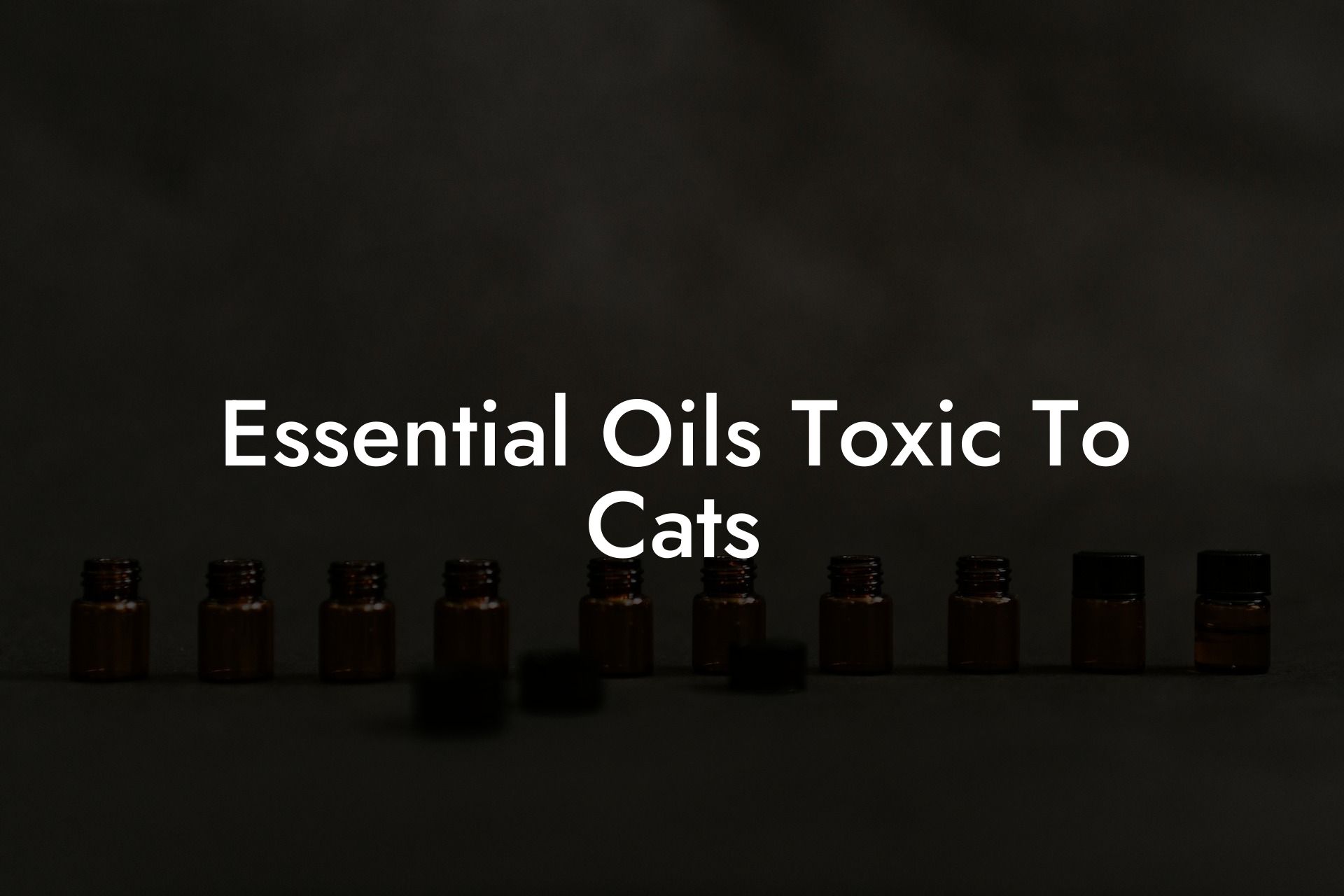Are you a cat parent who loves the soothing aroma of essential oils in your home? It’s essential to be aware of the potential dangers some essential oils pose to your beloved feline friend. Today, we are going to dive into the world of essential oils that are toxic to cats and understand how to create a safe environment for them.
Table of Contents
Why are some essential oils toxic to cats?
Cats lack specific liver enzymes required to detoxify and metabolize certain compounds present in essential oils. This deficiency makes them more susceptible to the toxic effects of some essential oils compared to dogs or humans. Even in small quantities, certain oils can be harmful if ingested, inhaled, or absorbed through the skin.
Essential oils to avoid around cats
It is crucial to be aware of the essential oils that are considered toxic to cats. Here is a list of some common essential oils that should be avoided:
- Eucalyptus
- Clove
- Tea tree
- Peppermint
- Cinnamon
- Wintergreen
- Pine
- Lemon
- Lavender
- Rosemary
Always ensure to research the safety of any essential oil you plan to use around your cat.
Signs of essential oil toxicity in cats
If a cat is exposed to toxic essential oils, it may show the following symptoms:
- Drooling
- Vomiting
- Tremors
- Difficulty walking
- Respiratory distress (coughing, sneezing, wheezing)
- Increased heart rate
- Depression
- Lethargy
- Seizures
If you suspect your cat has ingested or been exposed to a toxic essential oil, contact your veterinarian immediately. Prompt treatment is necessary to prevent severe health complications.
Creating a safe environment for your cat
As a responsible pet owner, you want to create an environment where your cat can thrive without the risk of harm. Here are some ways to ensure you are using essential oils safely around your cat:
- Always double-check the safety of essential oils before using them.
- Keep essential oils out of your cat’s reach to avoid ingestion or direct contact.
- Avoid using diffusers in areas where your cat spends most of its time.
- Provide proper ventilation when using essential oils to avoid concentrated vapors.
- Consult your veterinarian before using any essential oil products on your cat.
Essential Oils Toxic To Cats Example:
Imagine you want to use lavender oil in a diffuser to create a relaxed atmosphere in your living room. Before using the oil, you should research whether it is safe to use around your cat. Since lavender is on the list of essential oils to avoid, it’s best to find an alternative that is non-toxic to cats. Instead of using a diffuser, consider using a cat-specific product that promotes relaxation and does not contain harmful essential oils.
Essential oils can add a beautiful fragrance to your home, but as cat parents, it is crucial to consider the safety of our feline companions. By being informed about the potential dangers of some essential oils, you can create a safe environment for your cat while still enjoying the benefits of essential aromas. Share this article with fellow cat owners to raise awareness about the risks associated with certain essential oils. Looking for more information on essential oils and aromacology? Visit the Oshu Oils blog for a comprehensive guide, and explore our range of high-quality, artisan essential Earth oils to enhance your wellbeing.





















